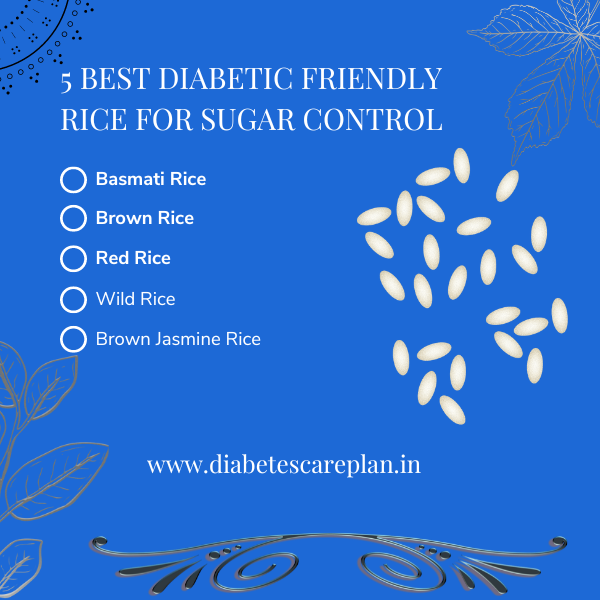In this blog post, we are going to discuss the Best Tips To Reduce Blood Sugar level naturally for the diabetic patients.
A comprehensive strategy that includes a range of lifestyle modifications and health practices is necessary for efficient diabetes management. Using a variety of tactics can greatly improve blood sugar regulation and general health in those with diabetes.
Important habits include minimizing refined carbs to avoid blood sugar spikes, exercising frequently to improve insulin sensitivity, and maintaining ideal blood glucose levels through hydration. A healthy body weight is essential for lowering insulin resistance; on the other hand, eating meals high in fiber helps to stabilize blood sugar and improve digestive health.
Cutting back on sugar is crucial to prevent blood sugar swings, and getting enough sleep promotes healthy insulin regulation. Additionally, the detrimental effects of stress on blood sugar levels can be lessened by engaging in stress management practices.
Each of these following tips play a vital role in creating a balanced and effective diabetes management plan, helping patients lead healthier and more fulfilling lives.
Table of Contents
Here Are The Following 8 Tips To Reduce Blood Sugar level For Diabetic Patients
1. Stay Hydrated

For diabetics, maintaining hydration is essential since it helps to reduce blood sugar level and promotes general health. Maintaining adequate hydration facilitates the kidneys’ ability to filter out extra sugar by diluting the blood, which helps control blood glucose levels. Hyperglycemia can result from the body’s blood sugar levels becoming more concentrated due to dehydration.
Water consumption also helps maintain kidney function, which is important because kidney disease is more common among diabetics. Furthermore, having good skin is important for diabetics who are prone to skin infections and slow-healing wounds. Staying hydrated helps with this.
Although eight glasses of water a day is the suggested amount for diabetic patients, this might vary depending on personal needs, activity level, and temperature. The greatest beverage to stay hydrated is water, but herbal teas etc, can also be helpful. Steer clear of caffeine and sugary drinks as these might cause blood sugar rises and worsen dehydration.
To stay as hydrated as possible, keep a water bottle close at hand, make hydration reminders, and consume foods high in water, such as cucumbers, watermelon, and leafy greens. Maintaining proper hydration is a straightforward yet effective diabetes management strategy. This will help diabetes to reduce blood sugar level.
2. Exercise Regularly

Frequent exercise is one of the best tips to reduce blood sugar level. It has several advantages for blood sugar control and general health, making it a cornerstone of diabetes management. Exercise lowers blood glucose levels in diabetics by improving insulin sensitivity, which makes it possible for cells to use available insulin more efficiently.
Exercise also helps with weight control, which is important for people with type 2 diabetes because being overweight can make insulin resistance worse. Engaging in physical activities like walking, cycling, swimming, or strength training can enhance cardiovascular health and lower the risk of heart disease, which is a prevalent consequence of diabetes.
Regular exercise also improves mood, increases energy, and lowers stress—all of which are critical for properly managing diabetes. To be consistent, try to get in at least 150 minutes a week of moderate-intensity exercise spread over a few days.
To prevent hypoglycemia, blood sugar levels must be checked before and after exercise, especially if you take insulin or other medications that lower blood sugar. To avoid injuries, drink enough of water, protect your feet with appropriate footwear, and build up your workout intensity gradually.
It is best to discuss with a healthcare professional before beginning any new fitness program so that the exercises are customized to your individual needs and ability. Frequent exercise is a highly effective and it will reduce blood sugar level, all-natural method of controlling diabetes and enhancing life.
3. Limiting Refined Carbohydrates
Limiting refined carbohydrates is one of the best tips to reduce blood sugar level. Patients with diabetes must restrict refined carbs in order to preserve stable blood sugar levels and general health. Blood sugar levels jump quickly when refined carbohydrates, which are found in foods like white bread, pastries, sugary cereals, and sweetened beverages, are broken down into glucose.
Over time, these increases may result in insulin resistance, which will make it more difficult for the body to properly regulate glucose. This can make problems worse and make it more difficult for diabetics to control their blood sugar. Whole grains and high-fiber foods, like whole wheat bread, quinoa, brown rice, and oats, help release glucose into the bloodstream more gradually and steadily.
These foods support stable blood sugar levels and aid in weight management by fostering a feeling of fullness. In addition to promoting digestive health, diets high in fiber lower the risk of cardiovascular disease, which is a significant worry for diabetics.
Practical measures to reduce consumption of refined carbohydrates include meal planning, reading food labels, and keeping an eye on the sources of carbohydrates. Increasing the amount of veggies, lean meats, and healthy fats in the diet can also help to maintain blood sugar control and offer balanced nutrition.
Making these dietary adjustments can significantly enhance diabetes management and improve long-term health benefits.
4. Weight Management
Weight Management is the best tip to reduce blood sugar level. Keeping a healthy weight has a major impact on blood sugar control and general health, making it an essential part of managing diabetes. Achieving and maintaining a healthy weight can improve insulin sensitivity in diabetics, enabling the body to use insulin more efficiently and lowering the need for prescription drugs.
Being overweight, especially in the abdomen, is linked to higher insulin resistance, which makes it more difficult to regulate blood sugar levels. Controlling one’s weight can assist avoid or postpone the development of consequences including kidney issues, neuropathy, and cardiovascular disease.
Achieving a healthy weight requires cutting back on processed foods and carbohydrates and embracing a balanced diet high in whole foods, lean proteins, healthy fats, and fiber. Frequent exercise, including aerobic and strength-training activities, is essential for calorie burning and muscle growth, both of which contribute to weight control.
Maintaining motivation and sticking to a weight control plan can be facilitated by setting reasonable goals, monitoring your progress, and asking for advice from medical professionals, dietitians, or support groups.
It might also be helpful to address the psychological and emotional elements of eating and weight. For diabetic patients, maintaining a healthy body weight improves blood sugar control as well as their general well-being, energy level, and quality of life.
5. Choosing High-Fiber Foods
For diabetics, selecting meals high in fiber is essential since it helps to reduce blood sugar level and improves general health. Whole grains, legumes, veggies, fruits, nuts, and seeds are examples of foods high in fiber that help decrease the absorption of sugar into the bloodstream and prevent sharp rises in blood sugar.
Particularly soluble fiber in the stomach can decrease cholesterol and better regulate blood sugar levels by forming a gel-like material. Better control of insulin sensitivity and a lower risk of cardiovascular disease can result from this for diabetics. High-fiber diets also encourage satiety, which lowers total calorie consumption and helps with weight management.
Those with type 2 diabetes who frequently battle obesity will particularly benefit from this. Consuming meals high in fiber also helps to maintain digestive health by encouraging regular bowel movements and avoiding constipation. It’s easy and pleasant to add a range of high-fiber items to meals.
For instance, incorporating beans into salads, consuming whole fruit rather than juice, nibbling on almonds, and deciding on whole-grain goods over refined ones. To help with digestion, it’s critical to gradually increase fiber intake and to drink lots of water.
Overall, choosing high-fiber foods is a natural and effective way to enhance diabetes management and improve long-term health outcomes.
6. Reducing Sugar Intake
For diabetic individuals to efficiently control their blood sugar levels and enhance their general health, cutting back on sugar intake is essential. Consuming large amounts of sugar can cause noticeable rises in blood glucose levels, which makes stable blood sugar regulation difficult, especially when the sugar comes from refined sources such sweets, sugary drinks, and processed foods. It is wise-full action that diabetes should not take sugar in order to reduce blood sugar level.
Consuming a lot of sugar can exacerbate insulin resistance and make managing diabetes more difficult, which can lead to weight gain. Reducing sugar intake helps diabetics better control their blood sugar levels and lowers their chance of developing complications like renal problems, nerve damage, and cardiovascular disease.
Sweetness may be achieved without severe blood sugar increases by substituting healthier foods like fresh fruits, which have natural sugars along with helpful fiber. Since many goods include added sugars under different names, it is important to carefully read food labels to find hidden sugars in processed meals.
Moreover, natural, low-calorie sweeteners like monk fruit or stevia can help quell cravings for sweets without raising blood sugar levels. Retraining taste buds to prefer less sweet meals can also be accomplished by gradually cutting back on sugar intake.
Overall, reducing sugar intake is a key strategy in managing diabetes effectively, supporting better blood sugar control, weight management, and long-term health. But, diabetes can take Stevia which is the best alternative to normal sugar.
7. Importance of Sleep

Sleep has a major impact on blood sugar levels and general health, making it an essential part of managing diabetes. Getting enough sleep lowers the risk of high blood sugar in diabetic individuals via regulating insulin sensitivity and glucose metabolism. Insulin resistance can result from the body’s inability to use insulin as a result of poor sleep quality or sleep disorders like sleep apnea.
This can worsen the difficulties associated with diabetes and make blood sugar control more difficult. Inadequate sleep can also raise stress chemicals like cortisol, which can further increase appetite and blood sugar, resulting in weight gain and unhealthful eating habits.
Improving the quality of one’s sleep requires adhering to good sleep hygiene habits, which include keeping a regular sleep schedule, setting up a peaceful sleeping environment, and avoiding stimulants like caffeine right before bed. It’s also critical to manage sleep disturbances with medical intervention as needed.
Not only does adequate sleep improve blood sugar control, but it also improves mood, energy, cognitive performance, and general well-being. For diabetics, getting enough sleep is just as important to controlling their health as food and exercise.
By ensuring sufficient and restful sleep, diabetic patients can reduce sugar blood sugar level, control the risk of complications, and improve their quality of life.
8. Implementing Stress Management Techniques
Patients with diabetes must learn stress management strategies because stress has a substantial impact on blood sugar levels and general health. Stress causes the body to release adrenaline and cortisol, two hormones that can raise blood sugar levels. Insulin resistance brought on by ongoing stress can make it more difficult to successfully control diabetes.
Stress can also result in unhealthy habits like overeating, making poor food choices, and skipping regular exercise, which makes managing diabetes more difficult. It is possible to lower stress levels and foster a sense of calm by incorporating stress-reduction methods including progressive muscle relaxation, yoga, deep breathing exercises, and mindfulness meditation.
Because it lowers stress hormones and releases endorphins, regular physical activity is also a great approach to manage stress. Stress reduction techniques include establishing a healthy work-life balance, defining reasonable goals, and asking friends, family, or support groups for assistance.
Some people find that taking part in hobbies or enjoyable activities helps relieve stress and provide them a mental break. Patients with diabetes should be aware of the warning symptoms of stress and take proactive measures to reduce blood sugar level.
By practicing effective stress management techniques, diabetics can improve their blood sugar control, enhance their overall well-being, and reduce the risk of complications associated with diabetes.
Summary
In conclusion, a comprehensive strategy that incorporates proactive lifestyle choices and good habits is necessary for the efficient management of diabetes. Basic habits that promote blood sugar regulation and general health include drinking enough of water, exercising frequently, and avoiding processed carbs.
Sustaining a healthy body weight and selecting foods high in fiber also improve metabolic performance and avert difficulties. Cutting back on sugar is essential for avoiding blood glucose swings, and getting enough sleep is critical for healthy insulin regulation and overall well-being.
Furthermore, reducing the negative impact of stress on blood sugar levels requires implementing stress management strategies. Patients with diabetes can take better care of their health, lower their risk of complications, and enhance their quality of life by implementing these all-encompassing techniques.
By regularly implementing these suggestions, people with diabetes can manage their condition in a sustainable and well-balanced manner, leading to happier and healthier lives.





